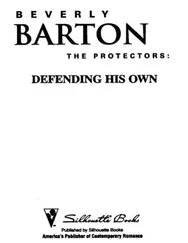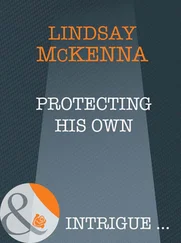The issues of animal trespass and the conflicting portrayal of Cyclone Seven as an attractive nuisance which were disposed of in an earlier action before this court (see Szyrk, supra) surfaced again in the jury trial here under review. As held in Baker v. Howard County Hunt, 171 Md. 159, 188 A. 223; Pegg v. Cray, 240 N.C. 548, 82 S.E.2d 757, and elsewhere, no liability attaches to the owner of a 'reputable dog' for its straying without his consent and unaccompanied by him onto the land of another, and defendant's claim excluding the dog Spot from this category on grounds of his disreputable companions on neighborhood outings was dismissed. Where there is some authority for liability attaching to unfenced lands whereon are to be encountered erections or machinery negligently maintained so as to constitute a trap (Malernee Oil Co. v. Kerns, 187 Okla. 276,102 P.2d 836), defendant denied such liability claiming as ordinary use free and open access to the subject premises and the erection thereon as public art where, by permitting the trespassing animal to roam at large, its owner assumed the risk for any harm or injury befalling it and thus yielded any right of action. Here the court concurred, since where plaintiff is found exempt from liability for the beast's trespass this does not make such trespass lawful rendering defendant liable for injuries not wilfully or wantonly inflicted (Pure Oil Co. v. Gear, 183 Okla. 489, 83 P.2d 389; Tennessee Chemical Co. v. Henry, 114 Tenn. 152, 85 S.W. 401). On the related charge of distraint, where the distress is lawful it is well established that the distrainer is obliged to feed and care for the animal which stands uncontested in this action and only in the event of his negligence will he be held liable (Kelly v. Easton, 35 Ida. 340,207 P. 129, 26 A.L.R. 1042), but where such distraint is for any reason
Illegal the distrainer regardless or negligence remains liable for any injury to the beast while under his care (Dickson v. Parker, 4 Miss. (3 How.) 219), and here such failure resulting in unjustifiable pain and suffering on the beast's part through any and each act of neglect or omission may appear in the garb of passive cruelty where intention is not essential, as in such wilful acts as tying a flaming oil can to a dog's tail in State v. Kemp, 234 Mo. App. 827, 137 5.W.2d 638, or setting the dog itself afire (Commonwealth v. Gentile, 255 Mass. 116, 150 N.E. 830). Thus where an action may be maintained on a case for unintended injury or destruction, it is obligatory upon the animal's owner not only to allege facts showing defendant's negligence, but that such injury or destruction came about through this negligence as the proximate cause.
Nowhere in all of law are we confronted by a concept that has sired more confusion and disagreement and so presumably swelled the coffers of the legal profession than that of 'proximate cause,' a phrase derived from a formulation by then Lord Chancellor Sir Francis Bacon some four centuries ago, Injure non remota causa, sed proxima, spec-tatur, summoning shades of Ockham's razor from a past yet more remote. 'Cause and effect find their beginning and end in the limitless and unknowable,' wrote Judge Powell in Atlantic Coast Line R. Co. v. Daniels (8 Ca. App. 775, 70 S.E. 203). Therefore courts, in their finitude, do not attempt to deal with cause and effect in any absolute degree, but only in such a limited way as is practical and as is within the scope of ordinary human understanding. Hence arbitrary limits have been set, and such qualifying words as "proximate" and "natural" have come into use as setting the limits beyond which the courts will not look in the attempt to trace the connection between a given cause and a given effect.'
in alleging a bolt of lightning as the proximate cause of the victim's destruction in the instant case, defendant contends that the court erred in submitting the question of negligence to the jury and should have declared as a matter of law that an act of God was responsible for the dog Spot's death. Further, it has been held that this need not be the immediate cause, if it followed in a logical and unbroken sequence originating with the act of God (Blythe v. Denver & R.G.R. Co., 15 Colo. 333, 25 P. 702), and thus even absent the corpus delicti where singed fur might have evidenced that direct encounter with the Deity the fright so engendered would without physical impact be sufficient in its internal operation in that ghastly interval to cause death (Louisville & N.R. Co. v. Melton, 158 Ala. 509, 47 SO. 1024).
It is quite universally held that a casualty cannot be ascribed exclusively to an act of Cod thus excluding liability where any human agency has intervened in or contributed to the result (Cachick v. U.S. (D. III.) 161 F.
5upp. 15), and hence where by act or negligence such intervention is alleged it becomes a matter for a jury as triers of fact. 'Negligence, it must be repeated, is conduct which falls below the standard established by law for the protection of others against unreasonable risk. It necessarily involves a foreseeable risk, a threatened danger of injury, and conduct unreasonable in proportion to the danger' (Prosser, Law of Torts, 4th ed.). While lightning is notorious as an act of God within the comprehension of the law, 'when the negligence of a defendant "concurs" with an act of God, which is to say an unforeseeable force of nature, he is to be held liable' (Prosser op. cit., and see Manila School Dist. No. 15 v. Sanders, 1956, 226 Ark. 270, 289 S.W.2d 529). Honouring the familiar maxim causa causea est causa causati plaintiff avers, albeit in more homespun language, such concurrence on the part of party to the action by impleader the creator of Cyclone Seven in situ and there stipulated 'to stand freely exposed to natural forces' (Szyrk, supra). Where plaintiff further alleges that these impediments to its removal were swept away by the appeals court decision reversing this major provision in Szyrk, supra, defendant's disclaimer on grounds of the lack of a demolition permit required by municipal ordinance for such a procedure which, in the usual course of events would be issued by and to itself, has provoked the further charge of conspiracy wherein plaintiff cites the prominent presence on the Village Board of one Mel Kandino-poulls as chief obstacle to such issuance, submitting in evidence the expanding premises of Mel's Kandy Kitchen in the form of a sunny new dining area overlooking Cyclone Seven and a printer's dummy of a projected new menu offering quiche Lorraine, caesar salad with arugula, sangria and similar enticements to the sophisticated palates of prosperous out of town visitors where hoagies and a Bud by local custom had hitherto prevailed. These charges were dismissed by the court under common law immunity for public officers, based less on the 'desire to protect an erring officer… (than on) a recognition of the need of preserving independence of action, without deterrence or intimidation by the fear of personal liability and vexatious suits' Restatement, Second, Torts 895D, see also Learned Hand, J., in Gregoire v. Biddle (2d Circ. 1944)177 F.2d 579.
in dismissing these allegations in toto the court found plaintiff's claims to be lodged in pure conjecture with no facts alleged to support recovery of the chattel safe and unharmed upon or during removal of the vehicle of its detention. Were we now ourselves to stray beyond these posted limits in further pursuit of the matter our path would soon be joined with that taken at excessive speed through the State of New Jersey by the defendant who arrived therewith for an on time appointment in Philadelphia with a bolt of lightning (compare Berry v. Sugar Notch Borough, 1899, 191 Pa. 345; Doss v. Town of Big Stone Gap, 1926, 145 Va. 520,134 S.E. 563), an appointment better kept in Samara by that special breed of novelist driven by despair to embrace vthe unswerving punctuality of chance' (cit. omitted), sinking us deeper in the twilight of confusion from whence we shall now emerge inter canem et lupum, as it were.
Читать дальше












